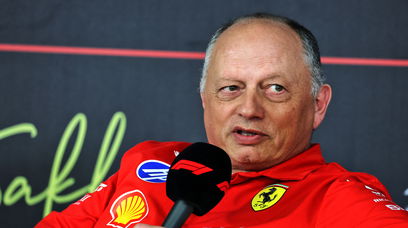Helmut Marko has revealed how Red Bull Powertrains will work in 2022 after Honda bow out of Formula 1 at the end of this year. Red Bull will take on the running of Honda's power units from January 2022 when F1 introduces a freeze on power unit development for three years. Marko opened up to RacingNews365.com about Red Bull's new chapter. "We are actually forced to become an engine supplier, because Honda is leaving F1," said Marko. "We were immediately convinced that we would like to build our own engine. For us, the package is very important. "If you buy a power unit from a manufacturer, you get a package that can compromises you, that can affect you because you have to build the car around the engine. "If you have the engine department in-house, you can make the least compromise to build an optimal total package. We get the IP rights and the 2022 engines, which are being developed in Japan. "Everything we get from Honda is for a fee. We will also continue to work with them in many areas." Red Bull have not specified how much money they are paying Honda, but it's likely to be more than the standard amount of $18 million a team pays to a power unit supplier per year for engines. "When the new engines come, we will assemble and build them ourselves in 2023 or 2024," continued Marko. "That's a great project. "It's no secret that we bought the necessary engine dynamometers for this. We have a promise that in the event of problems we will get support from Honda. "But only to the extent that there is human capacity available for that. We will also take over staff and a dyno from them. These are very good Japanese people and with the people who come to us from Mercedes I think we have a very good package." Article continues below image
Honda Chief Executive Masashi Yamamoto says next year's engine, which will be supplied to AlphaTauri and Red Bull, is set to be based on this year's power unit with as many performance updates as possible before the engine freeze. "We are going to support as much as possible [on] the technical side in order for both teams to be competitive," added Yamamoto. "On the marketing side it will be minimum support [from Honda]. "It's under discussion with Red Bull how we can support or be involved in marketing the Red Bull project." Red Bull will be investing upwards of a hundred of millions in their new project, with their new engine factory in Milton-Keynes currently scheduled to be ready for use in 2023. Mercedes had at least 400 people working in their engine department in recent years so Marko was asked by RacingNews365.com whether Red Bull can expect a similar number of people in 2023 and beyond. "That depends on whether there is also a parallel program for the development of the new engine," said Marko. "The engines will be used at AlphaTauri and Red Bull Racing. Roughly speaking, between 300 to 500 people will work [on the project]." Marko says Red Bull Powertrains' engines will be exclusive to Red Bull and AlphaTauri. He has ruled out supplying other teams until at least 2025 when F1 is set to introduce a new power unit to the sport. F1 regulations oblige the engine manufacturer who is supplying the least number of teams to provide their power unit as required. Currently, that would be Renault who are only supplying Alpine with their engine. Article continues below image
Marko has not ruled out a future collaboration with Honda or any new manufacturers such as Audi or Porsche when F1's next generation power unit makes its debut in 2025 or 2026. "That will depend a lot on the type of battery that will be used in the future," said Marko. "Honda is, of course, also investing in E-technology." Honda's partnership with Red Bull Racing began in 2019 and they enjoyed early success together as Max Verstappen won three races. This season, Red Bull and Honda have mounted a serious title challenge, but it has not changed Honda's decision to leave F1. "We are finishing the project after this year and we are going to focus on carbon neutral and also electric," said Yamamoto, when asked whether Honda could return to F1 in the future. "About the future, we have a new CEO from this April, so he may be considering something, but at the moment, we can't really say anything. "The main reason is that we are using our best engineers from the company in F1 to catch up [to] Mercedes. So we want to use them in electrification and also [the] carbon-neutral project."
Most read






